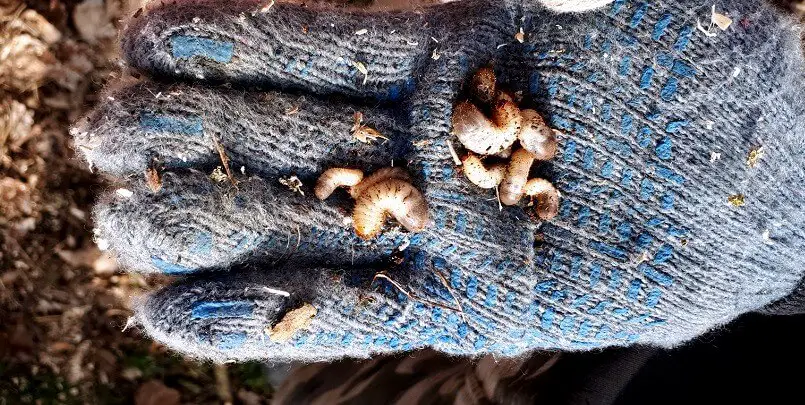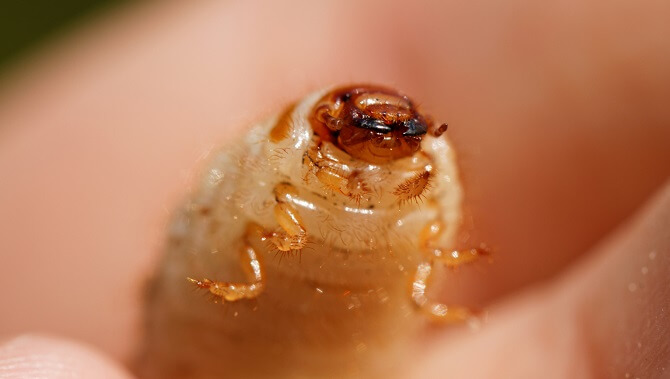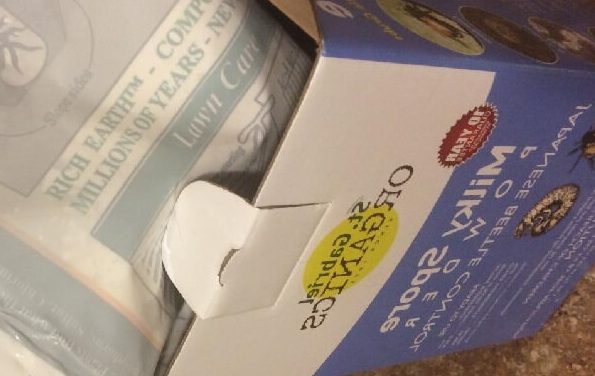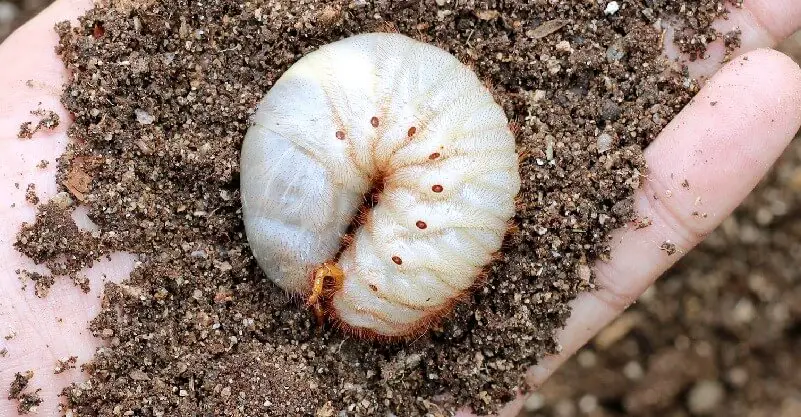Milky Spore Vs Nematodes Grubs Control

To combat this common nuisance, gardeners often turn to various control methods, with two popular options being Milky Spore and Nematodes. We delve into the fascinating world of grub control, comparing the efficacy and characteristics of Milky Spore and nematodes, providing valuable insights to help you make an informed decision for your garden.
Nematodes Vs Milky Spore Table
This comparison table will help you to understand the difference between those two products at a glance.
Milky Spore | Nematodes |
Milky Spore is a specialized treatment for controlling Japanese beetle grubs. | Nematodes are known to eradicate more than 200 species of grubs and pest insects |
Does Not Harm Beneficial Insects | It Contains Steinernema Feltiae |
Milky Spore is a slow-acting solution that requires 7 to 21 days to eliminate grubs effectively. | Using nematodes results in faster extermination, typically within a short span of 24 to 48 hours. |
Milky spores can remain active in the soil for an impressive period of time, up to 10 to 20 years. | Nematodes might need annual applications to retain their effectiveness, though they can survive for about 2 to 3 years. |
To treat a lawn that is 10,000 sq ft in size, you will need around 40 oz of Milky Spore Powder. | A package containing 10 million Nematodes can effectively cover an area of about 2000-3000 square feet. |
It Kill Japanese Beetle, June Beetle And Other Lawn Grubs | It Kills Flea Larvae, White Grubs, Cutworms, Corn Root Worms, Strawberry Weevils, Fungus Gnat Larvae, And Many More. |
Apply Milky Spore in the early fall when grubs are most active for best results. However, it can also be applied during spring and summer. | To ensure effectiveness, it is recommended to apply nematodes during low-light periods such as morning or evening. |
Mode of Action
Nematodes are minuscule, worm-like organisms that thrive in the soil. They target grubs and other insect larvae, eradicating them by infecting them with diseases caused by bacteria.
Conversely, the Milky Spore is a grub killer that comprises P. popilliae bacteria, which promptly eliminates Japanese beetle grubs within a few days once consumed.
Broad-Spectrum Efficiency
Nematodes are known to eradicate more than 200 species of grubs and pest insects, including virtually all kinds of lawn-destroying grub.
On the other hand, Milky Spore provides a highly specialized treatment, only affecting Japanese beetle grubs and leaving other species unscathed.
Effectiveness
Nematodes, a type of parasitic worm, have shown significant effectiveness in eliminating grubs. Their application results in faster extermination, often within a concise span of 24 to 48 hours. This fast-acting solution is ideal for immediate grub issues.

In contrast, using Milky Spore, a bacterium known as Bacillus popilliae, takes a more gradual approach, taking anywhere between 7 to 21 days to effectively kill grubs. This gradual process may be ideal for preventing further infestations and long-term lawn health, but it lacks the quick-acting benefits of nematodes
Longevity in Soil
Milky spores exhibit impressive longevity in the soil, with active presence reported for 10 to 20 years post-application. In contrast, nematodes might need annual applications to retain their effectiveness, though they can survive for about 2 to 3 years.
Costs of Application
The overall cost of using nematodes tends to be less when compared to the application of milky spores. The exact costs may vary based on factors such as lawn size, local prices, and other related expenses, but overall, nematodes are generally a more economical option.
Applying milky spores to the same lawn area usually incurs higher costs, making it a more expensive alternative.
Environment-Friendly
Both these solutions offer environmentally-friendly ways to deal with grub infestations. Nematodes and milky spores are organic, non-toxic pest control options.
They do not harm your family, pets, or the environment. Additionally, they are safe for beneficial insects, which are crucial to maintaining a balanced ecosystem in your garden.

Ease of Application
Applying nematodes to your lawn is relatively straightforward. These can be mixed with water and sprayed over the affected area. On the other hand, Milky spores can also be applied easily using a lawn applicator or a lawn spreader designed for grass seed.
This means homeowners can effectively handle grub problems without requiring professional pest control services, thus saving time and resources.
Storage Instructions
Nematodes should be stored refrigerated (but not frozen) and applied as soon as possible after purchase. Their effectiveness reduces over time as they can die if not utilized promptly. Milky Spore can be stored in a garage and is not affected by freezing or other adverse environmental conditions.
Quantity Requirements
The quantity of nematodes or milky spores needed to treat your lawn depends on the size of the area. For a 10,000 sq ft lawn, approximately 40 oz of Milky Spore Powder is required. Nematodes are typically sold in large quantities, usually around 10 million in a package.
This amount can cover a sizable area, usually around 2000-3000 square feet. It’s crucial to understand the extent of the infestation and the lawn size to determine the right quantity of nematodes or milky spores required.

Ideal Application Time
Nematodes should be applied during low light periods, either in the morning or evening, to a lawn that has been watered or after a light rain. This guarantees better penetration and prevents them from drying out and dying before reaching the soil.
Milky Spore is best applied in early fall, when grubs feed most actively, although it can also be applied in spring and summer. The ideal soil temperature for Milky Spore is between 60 and 70 degrees.
Our Observation
Both nematodes and Milky Spore present effective, eco-friendly solutions to grub infestations. However, their effectiveness is situation-specific. For immediate and broad-spectrum eradication, nematodes are ideal, thanks to their swift action and versatility against various grub species.
Their application is also less costly, a benefit for budget-conscious homeowners. In contrast, Milky Spore focuses on long-term prevention, specifically against Japanese beetle grubs. Its longevity in the soil is impressive, spanning up to 20 years, and ideal for persistent protection.
The ease of storage and application are comparable for both. Hence, the choice hinges on immediate needs versus long-term prevention and species-specific effectiveness. A mix of both might offer an optimal solution in many cases.
Related Article

James E. Butkovich, Pest control maven with a knack for eco-friendly & Chemical solutions. Blogger with a mission to make homes pest-free, one post at a time.

